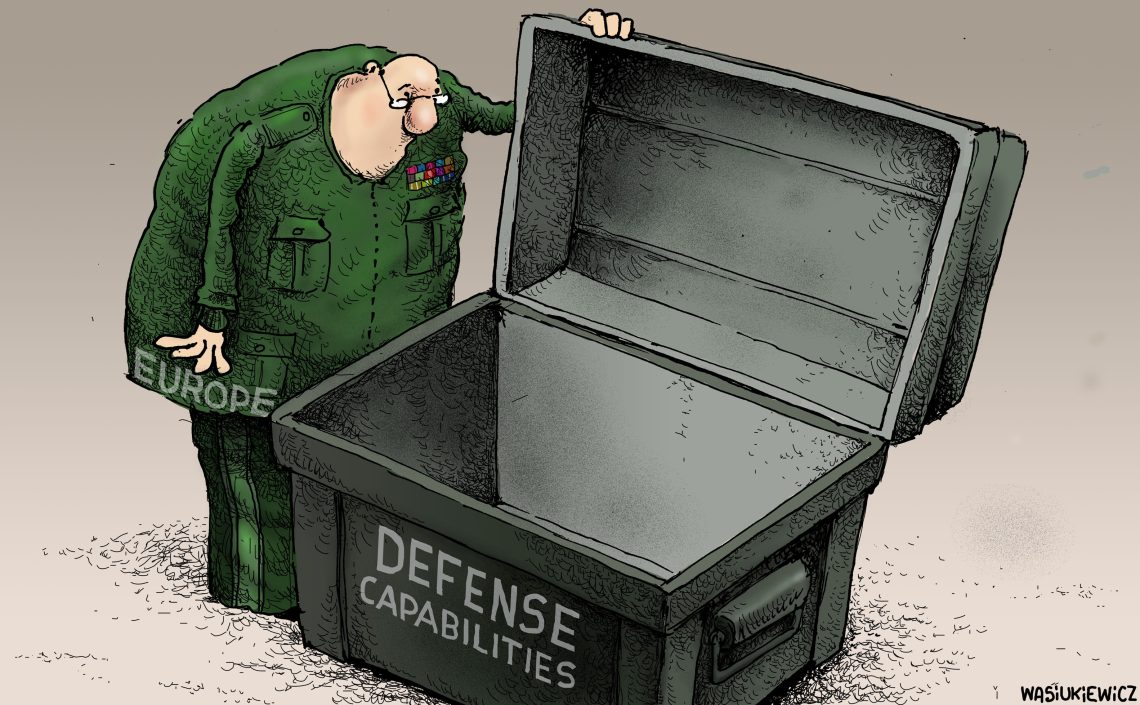Is a broader European war imminent?
Despite lots of tough talk from leaders of late, Europe is not ready for war. A swift rearming including private sector investment is the remedy.

The message in today’s media is that the West is heading toward war with Russia. Politicians are now joining in. The President of the European Council, Charles Michel, has been very direct on that point. French President Emmanuel Macron has echoed him recently. Germany’s Chancellor Olaf Scholz is petrified of provoking Russia. And Europe is militarily unprepared.
Considering the above, European countries would need to do everything possible to support Ukraine. So far, that has not been the case. Lip-service is being paid in many European countries about boosting defense spending and capabilities. Yet, with some noteworthy exceptions, not enough effective implementation of the promised measures is visible.
Overstretched finances
Certainly, financing defense spending in highly indebted European economies with oversized, cash-hungry states is a problem. How will it be financed, without cutting – God forbid – either the bureaucratic expenditure and privileges of the technocracies or the social programs used to buy votes?
One problematic idea to finance the immediate needs of Ukraine that has gained traction recently is confiscating the Russian Central Bank’s euro assets. Although this measure would provide some short-term relief, it is both legally questionable and not a long-term solution. It does not address the costs to rearm the defenses of European countries in manpower and equipment.
The continent has some great businesses and know-how in the defense sector. But they are limited by insufficient procurement and strong export restrictions.
Much remains to be done to make up for past negligence, and a further strengthening will be necessary.
Investment and the private sector
In most NATO countries, the 2 percent of gross domestic product spending commitment has yet to be reached, while hundreds of billions of euros of additional defense outlays will be needed over the next five years to counter Russia and to provide for other requirements to defend European interests.
This cannot happen in purely planned economies. It also needs a proper industry, based on unleashing market principles to provide for growing investments in the defense sector. With a strategy based on efficient procurement planning and streamlined export procedures, private capital would flow into these investments. This would also provide a much-needed economic boost. Turkey is a good example of such strategic developments.
The continent has some great businesses and know-how in the defense sector. But they are limited by insufficient procurement and strong export restrictions. Europe must engage the private sector, even if it contradicts the statist dogmas of national governments and the bureaucratic planning recently developed in Brussels.
Taking responsibility
Europe cannot and must not rely indefinitely on the unlimited readiness of the United States to defend the integrity of all European countries. NATO Article 5, which defines an attack on one member as an attack on all, leaves room for interpretation as to how militarily involved member states have to be in defending an ally.
The U.S. is also strongly challenged in the Pacific. The last thing Washington wants is a direct confrontation with Russia, a significant nuclear power. At least verbally, Moscow is becoming less hesitant about using its nuclear capabilities on a tactical level.
Europe must engage the private sector, even if it contradicts the statist dogmas of national governments and the bureaucratic planning recently developed in Brussels.
So, do we have the time to act, or has Europe already “sleepwalked” to a point of no return where a broader war is imminent?
Though war might seem inevitable, a quick start and resolute determination in rearming would send a strong signal to prospective adversaries. It will also require an understanding among governments with Berlin and Paris at the core, with other countries joining in.
So far, the biggest danger is that a potential aggressor believes – not without good reason – that some European nations are not only unable, but also unwilling to defend themselves.
In order to maintain freedom and peace, determination is crucial.

